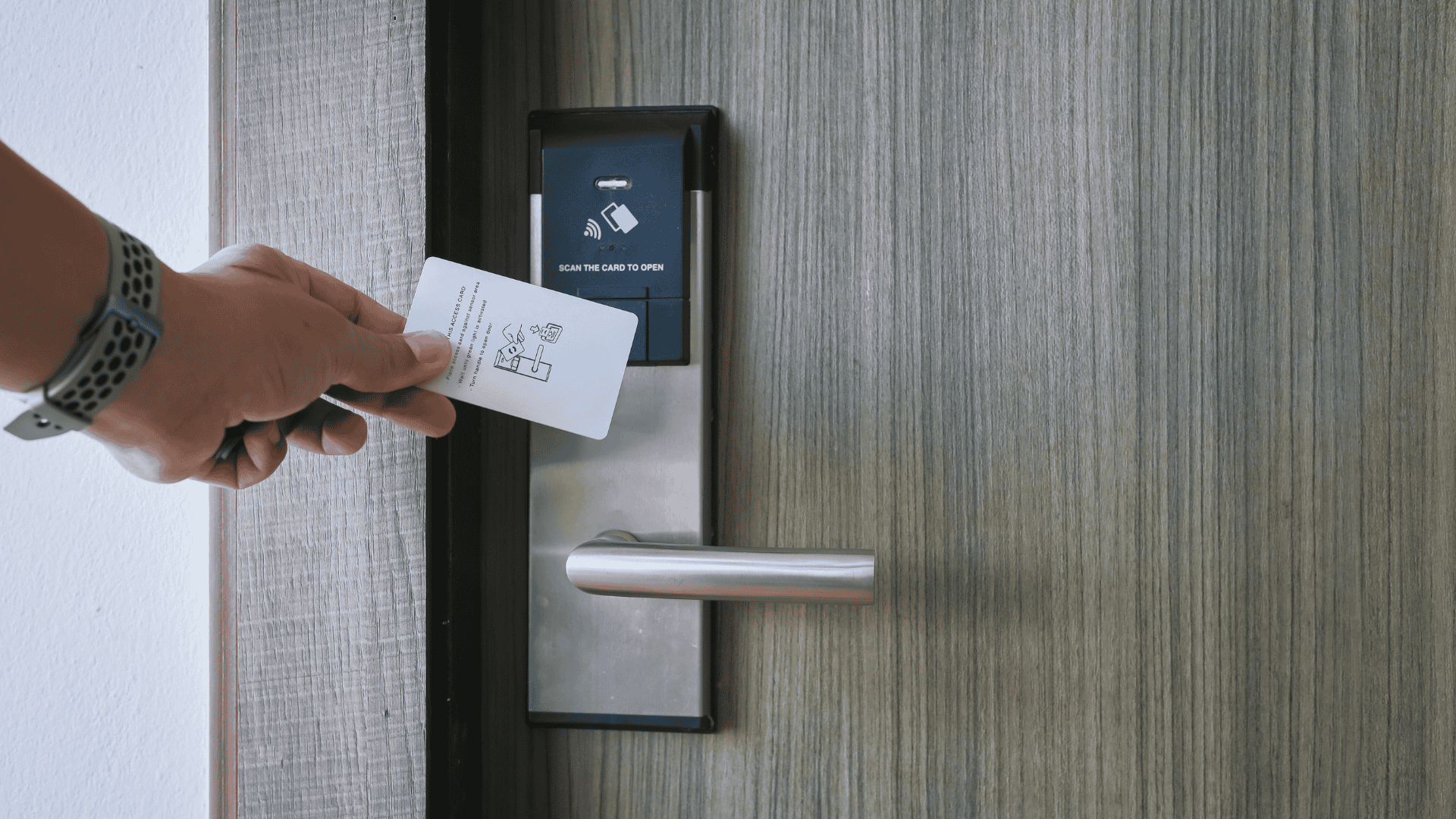In today’s digitally-driven hospitality industry, safeguarding guest information is paramount.
Recent data indicates a concerning trend: cyberattacks in the hotel sector have increased by 40% in the past year.
As hotels integrate more technology into their operations, from online reservations to digital key cards, the risk of cyber threats grows. Hotels are attractive targets for cybercriminals due to the wealth of guest information they handle – names, credit card numbers, and personal details.
The interconnected nature of hotel operations with various vendors and service providers can create potential vulnerabilities.
This rise in cyber incidents underscores the need for enhanced security measures to protect guest data and maintain the integrity of hotel operations. We will explore the implications of a cyberattack on hotels, its impact on business operations, and the lessons learned from navigating these challenges.

Responding to the Crisis
When a cyberattack strikes a hotel, the immediate impact is akin to a digital lockdown. Critical systems fail, disrupting guest services like check-in and online booking. The response is twofold: containing the breach and maintaining operational continuity.
Hotels must act swiftly to isolate affected systems, akin to containing a breach in a ship’s hull. This involves shutting down compromised networks and seeking expert assistance to assess and rectify the damage. Concurrently, alternative methods, such as manual check-ins, are employed to keep the hotel functional.
This situation places considerable stress on both staff and guests. Employees must adapt to new, often more challenging work processes, while guests may experience inconvenience and concern for their personal data. The team’s collective effort during this period is critical in managing the crisis and laying the groundwork for recovery.

Technical Analysis and the Initial Countermeasures
Understanding how the breach occurred is essential. Common entry points for hackers include exploiting weak passwords or deceiving staff into granting access. Once inside the network, attackers can access sensitive information, necessitating immediate action.
The initial response involves isolating the compromised systems to prevent further intrusion. This stage is crucial in limiting the spread of the attack and assessing its full scope. Meanwhile, operational continuity is maintained through alternative, often manual, processes.
In-depth investigations are conducted to secure the network, identify vulnerabilities, and implement corrective measures. This period is marked by intensive effort to restore digital services while ensuring the safety and confidence of guests.

Recovery and Strengthening Defenses
Post-attack, the focus shifts to rebuilding and fortifying digital defenses. The aim is to evolve from a vulnerable ‘eggshell’ model, where a single breach compromises the entire system, to a multi-layered ‘onion’ approach, enhancing overall resilience.
This involves implementing advanced security protocols, tools, and regular audits. Staff training in cybersecurity awareness becomes integral, equipping employees with the skills to identify and respond to potential threats. The goal is to establish a robust, multi-faceted defense system capable of withstanding future attacks.
Human Aspect and Organizational Adaptation
Recognizing the critical role of human vigilance in cybersecurity is a key takeaway. Continuous education and fostering a culture of security awareness among staff are as vital as technological solutions. Encouraging open communication about security concerns and potential threats reinforces a proactive security posture.
This approach empowers staff, transforming them into active participants in the hotel’s cybersecurity strategy. It also instills a sense of collective responsibility, essential for maintaining a secure and trustworthy environment for guests.

Lessons and Future Directions
The aftermath of a cyberattack offers valuable insights. Key among them is the necessity of ongoing preparedness and adaptability in the face of evolving cyber threats. The experience also emphasizes the importance of balancing technological advancement with robust security measures.
While challenging, the journey from a cyber breach to recovery catalyzes a transformation towards a more secure and technologically adept operation. It underscores the need for a holistic approach to cybersecurity, integrating technological, human, and organizational elements.
Conclusion
The journey through a cyberattack highlights a critical aspect of modern hospitality: digital security is integral to providing exceptional guest service. The experience underlines the importance of resilience, teamwork, and continuous learning in today’s digital landscape. As the industry evolves, a commitment to comprehensive cybersecurity is not just a best practice but a fundamental aspect of safeguarding guest trust and operational integrity.



